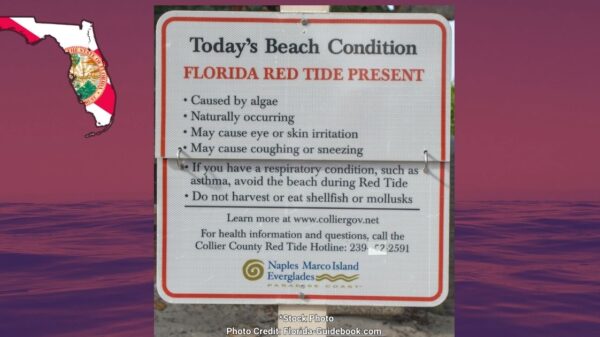Last week, U.S. Rep. Vern Buchanan, R-Fla., pushed the Federal Communications Commission (FCC) to do more to cut down on robocalls and scams.
Buchanan pointed to a report which found that telephone companies were not implementing the “Telephone Robocall Abuse Criminal Enforcement and Deterrence (TRACED) Act” which, according to supporters, “gives regulators more time to find robocall scammers, increases penalties for violators, promotes call authentication and blocking adoption, and brings federal agencies and state attorneys general together to address obstacles to criminal prosecution of robocallers who intentionally flout laws.” Then-President Donald Trump signed the TRACED Act into law at the end of 2019.
The law allows the FCC to fine “people who intentionally flout telemarketing restrictions” as much as $10,000 and expands the window from catching them from one year to three. The new law has a host of federal and state authorities working together but it also “requires voice service providers to adopt call authentication technologies, enabling a telephone carrier to verify that incoming calls are legitimate before they reach consumers’ phones.” Under the law, the FCC would also double down in its efforts to stop Americans from getting unwanted calls.
Buchanan cited a report which “found that of the 3,063 service providers that reported their status to the FCC by Sept 3rd, only 17 percent had fully implemented the anti-robocall technology required by the new law” and “only 27 percent had partially implemented the technology and 56 percent had not implemented the technology at all and claimed that they are instead relying on their own methods to block by robocalls.”
Last week, Buchanan weighed in on why he wrote the FCC on the matter.
“Telephone companies have a duty to their customers to silence robocalls once and for all,” said Buchanan. “These unwanted calls are more than just a minor inconvenience; phone scams can defraud innocent Americans out of their life savings, especially vulnerable seniors.”
Buchanan cited a report from Truecaller and the Harris Poll which found “as many as 60 million Americans have fallen victim to robocall scam artists over the last year” with the average victim “being swindled out of $502, a sharp increase from the average loss of $351 in 2020,” totalling almost $30 billion.
“Our senior citizens are high priority targets for scam artists and unscrupulous actors,” said Buchanan. “It’s critical we do everything in our power to protect seniors from fraudulent robocalls.”
Buchanan’s letter to the FCC is below.
When Congress enacted the Telephone Robocall Abuse Criminal Enforcement and Deterrence Act (TRACED Act) nearly two years ago, it did so with the clear intent of cracking down on the chronic nuisance of illegal robocalls and malicious caller ID spoofing. Unfortunately, through the end of July 2021, American consumers were bombarded by more than 30 billion robocalls already this year. Given the current average of about 4.3 billion robocalls a month, they are on pace to be barraged with almost 52 billion calls in 2021.
Under the TRACED Act, Congress created a requirement that telecommunication providers install Secure Telephone Identity Revisited and Signature-based Handling of Asserted Information Using Tokens (STIR/SHAKEN) robocall mitigation technology by September 28, 2021. However, recent reports show a failure of most telephone companies in the United States to comply with certain requirements of the TRACED Act.
Without widespread compliance by domestic telecommunication companies, these scam calls will continue unfettered and will remain a nuisance going forward. While less than 20 percent of companies are in full TRACED Act compliance, 27 percent are in partial compliance but 56 percent say they are instead relying on their own technology instead of STIR/SHAKEN.
According to a report from Truecaller and The Harris Poll, almost 60 million Americans have lost money to scam artists over the phone in the last year. These calls frequently target senior citizens as a scammer’s preferred victim, and as the representative of a district with a significant senior population, this is of particular concern to me.
On average, these innocent victims lost more than $500, up sharply from an average loss of $351 in 2020. According to industry analysts, more than 40 percent of all robocalls are fraudulent scams trying to bilk families and individuals out of their hard-earned money.
Complete industry compliance enforced by the Federal Communications Commission (FCC) is required by law and anything short of that will not adequately protect Americans from being further targeted by bad actors. If the FCC believes current compliance levels are sufficient:
What will the FCC do moving forward to ensure the protections provided by the 56 percent of telecommunications companies relying on their own robocall prevention technology is at least as robust as the STIR/SHAKEN technology required by the TRACED Act?
What actions will the FCC take moving forward to ensure bad actors do not further exploit the 83 percent of telecommunications companies that are unable or unwilling to implement STIR/SHAKEN technology as required by the TRACED Act?
For the 27 percent of companies considered to be in “partial compliance,” what will the FCC do moving forward to ensure these companies fully comply with the requirements set forth in the TRACED Act?
If the aforementioned reports are accurate, and a majority of telecommunication companies have yet to fulfill important TRACED Act requirements, it is imperative that the FCC immediately address this issue and take swift, appropriate action to enforce compliance. I look forward to your responses to these questions and stand ready to work with you and the rest of the FCC to ensure Americans are protected from further targeted harassment from unwanted robocalls.

















